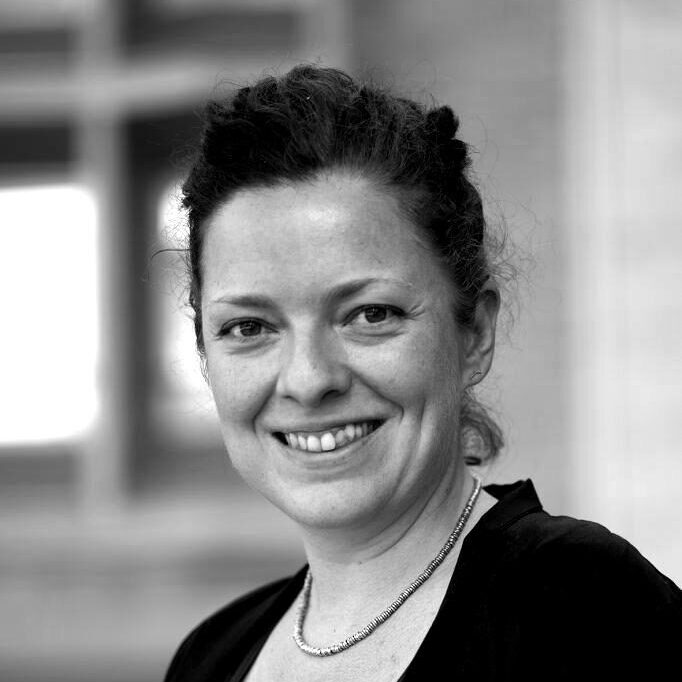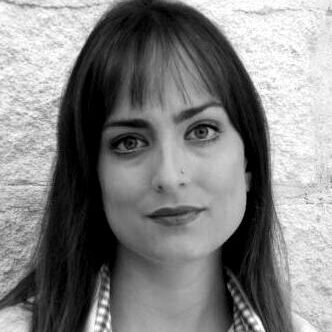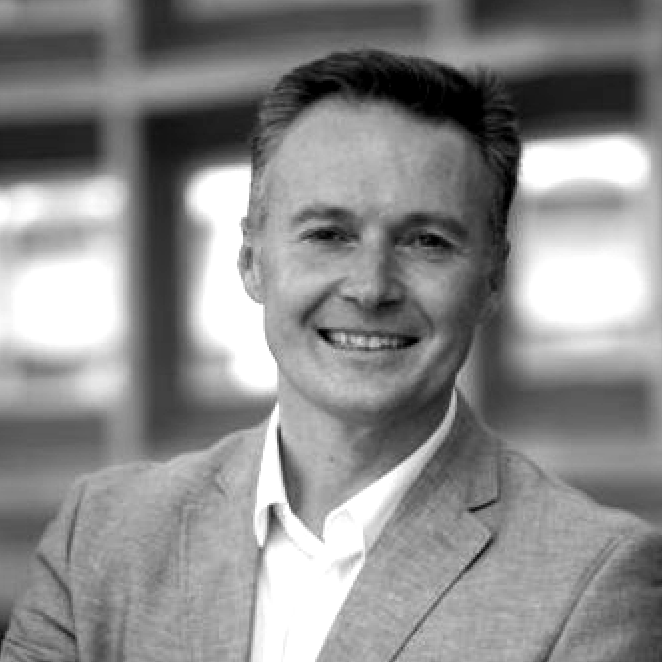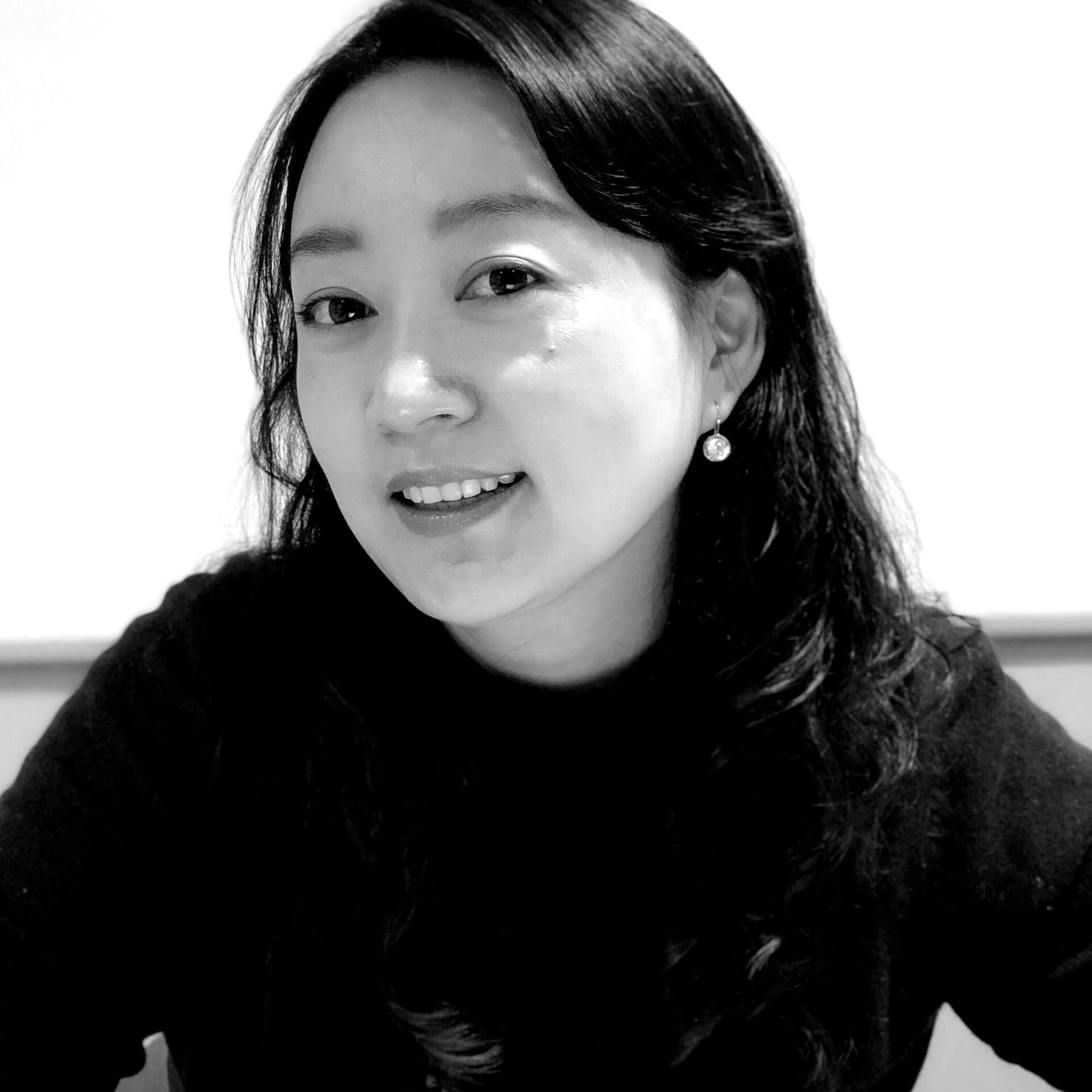The Research Group on Languages was created in 2007 with the aim of studying the use of languages from a broad and multidisciplinary perspective, with emphasis on the distinctive features of Catalan language in Andorra.
Our research areas are:
- Sociolinguistics in Andorra
- Application of the systemic methodology to the study of the use of Catalan in Andorra
- Neology of Catalan language
- Multilingualism and language policies at the university
- Language and communication technologies
- Teaching and learning of languages
- Cultural, identity and linguistic diversity
The group’s general objectives are:
- Studying language in use
- Identifying and studying the distinctive features language use in Andorra
- Analysing the trends in lexical and semantic creation in the Andorran media
- Testing new methods for the study of language use
- Analysing the evolution of the use of Catalan with respect to the rest of languages that coexist in Andorra
- Analysing the evolution of language use in ICT
- Analysing language competences and use at the university
- Designing and implementing policies and strategies for a multilingual university
- Assessing the impact of ICT on the acquisition and teaching of second and third languages
- Working together with other research groups

Nadia Azzouz Boudadi
Coordinator. PhD in the field of Applied linguistics and educational technology. Degrees in Translation and interpretation and Foreign language teacher.

Carolina Bastida Serra
PhD in the field of Linguistics and electronic communication. Master in Language and communication, degree in Hispanic philology.

Blanca Carrera Gonzalez
PhD in the field of educational innovation in higher education. Master’s degree in applied linguistics. Graduate in Primary Education, with a mention in English. English specialist teacher for the Department of Education of Catalonia and school language and cohesion coordinator.

Bárbara Cerrato Rodríguez
PhD in the field of Translation and Intercultural Mediation Master in Translation and Cultural Mediation and Master in Teacher Training, degree in Translation and Interpretation.

Ferran Costa Marimon
PhD in the field of Applied linguistics and educational technology. Master in Applied Linguistics, degree in International Relations, postgraduate in SMEs management. Ambassador of the Andorran Government. @FerranCostaAND

Miquel Nicolau i Vila
PhD in Electronic Engineering. Master in intelligent systems and parallel and distributed environments. Computer engineer, degree in Philosophy.

Carolina Poussier
Doctoral candidate in the field of language and technology. Master in Applied Linguistics and 25 years of experience in teaching languages in plurilingual settings. Graduated in Teacher training (foreign languages).

Fang Qian
Doctoral candidate in the field of Chinese language teaching and learning. Master in Business Administration. Bachelor in French Language and literature. Professor at the Yunnan University of Finance and Economics (YNUFE) (China).
ONGOING RESEARCH LINES
MULTILINGUALISM
In this line, different aspects of multilingualism are studied both within the framework of the University of Andorra (UdA) and in the context of the country, following the multilingual approach of the UdA from the beginnings of the Language Research Group to the present. This approach includes strategies to promote Catalan, as the official language, as well as second languages such as English, French, Portuguese and Chinese.
PROJECT 1. Multilingualism and university: Sociolinguistic profile of UdA students
At the UdA, the GREL is the agent in charge of studying the state and linguistic uses of the UdA in order to formulate informed proposals for the promotion of multilingualism, prioritising Catalan as its own language as well as the second languages most relevant to academic activity. The demographic evolution of the country and the increase in international students make it necessary to know how languages interact in university life to ensure a truly multilingual and inclusive environment. With regard to Catalan, as the main language at the University of Andorra, there has been a downward trend in its use, especially among students, but there is a lack of a more precise and systematic analysis of the actual uses of languages by this group, both in formal and informal settings.
Objectives:
- To analyse the attitudes and perceptions of students towards the languages present at the UdA, as well as the use they make of them in study contexts and social relations.
- To examine the linguistic levels of students in the languages most present at the UdA, taking into account previous sociolinguistic studies.
- To assess the relationship between linguistic attitudes and real uses of Catalan by students in academic and informal contexts.
- To examine the degree of identification with Catalan and its symbolic role within the university community.
- To detect possible barriers or facilitators for the use of Catalan as a language of communication.
- To formulate recommendations to strengthen the presence and prestige of Catalan at the UdA.
PROJECT 2. Chinese teaching and learning in the educational systems of multilingual small countries and proposal to introduce Chinese language teaching and learning in Andorra educational System (doctoral thesis)
China and Andorra established diplomatic relations in 1994. In 2016, the Confucius Classroom of Andorra was created, and the University of Andorra began to offer Chinese language courses. Developing a doctoral thesis in the field of Chinese language can increase mutual knowledge between both countries and cultures and their relations.
Objective:
- Explore the feasibility of implementing Chinese teaching in multilingual environments in the Andorran education system
- To promote multilingual and intercultural competences in the Andorran education system.
Actions developed:
- Research in language teaching in multilingual environments in Andorra
- Preparation and validation of analysis instruments
PROJECT 3. The Portuguese language in Andorra from a sociolinguistic perspective
This project is a continuation of the research work carried out by the same researcher, Dr. Joana Aguiar, within the framework of the latest research grant of the University of Andorra for sociolinguistic studies on the Portuguese language and culture (Camões Chair) entitled “The Portuguese language in Andorra in a sociolinguistic perspective: the use of code-switching and the emergence of linguistic innovations”. The research is co-funded by the UdA and the Camões – Institute for Cooperation and Language, within the framework of the Camões Chair.
Objectives:
- To contribute to the study of linguistic diversity in Andorra.
- To identify and analyse the contexts of lexical alternation in the discourse of Portuguese speakers.
- To identify the linguistic processes in variations resulting from grammatical convergence in the discourse of Portuguese speakers.
LANGUAGE AND TECHNOLOGY
This line of research converges the fields of research of the GREL’s latest doctoral theses. The interest in exploring how current and future technologies can contribute to the improvement of communication and learning of the most relevant languages for the UdA, have led the group to promote this common line of research.
PROJECT 1. Learning of emerging languages and technologies
This project has channelled different investigations that have branched into other new projects. Currently, there is the latest activity to disseminate the results of the doctorate Perceptions, practices, and attitudes on the use of technology in the English as a Foreign Language classroom: The iPad in the Andorran school system (Costa, 2022). Therefore, in this period 2025-2027 the project ends with the latest publication resulting from this thesis.
This research is part of an international research project, in collaboration with the Rovira i Virgil·li University of Tarragona and aims to explore the effects of IAG in immersive virtual reality on the learning of students of second language courses such as English.
Objectives:
- To study successful experiences in the field of applied technology in language learning (CALL and MALL) that can be implemented at the University of Andorra.
- Analyse the impact of communication technologies on the acquisition of communicative competence in a language 2.
- Explore both students’ perceptions and the actual impacts on their learning outcomes.
PROJECT 2. The use of generative Generative Artificial Intelligence (AIG) in immersive virtual reality for language learning
The most recent advances in Generative Artificial Intelligence (AIG) have accelerated the development of virtual reality through the integration of conversational agents in highly immersive virtual environments. These innovations are increasingly being used in the field of technology-assisted language learning, to address a persistent challenge in second language acquisition: providing authentic communicative contexts beyond traditional classrooms. This research is part of an international research project called VIOLET (Virtual Intelligence for Oral Language Enhancement Training), in collaboration with the Rovira i Virgil·li University of Tarragona, which aims to explore the effects of IAG in immersive virtual reality on students’ learning in second language courses such as English or Catalan for the newcomer population (or non-Catalan speaker). In the latter context, alliances will be sought with relevant agents for the promotion of Catalan in Andorra.
Objectives:
- To study the effects of IAG and immersive virtual reality on the evolution of second language learning, specifically the level of achievement in the fluency of oral communication.
- To examine the effects of these technologies on the anxiety levels of English learners in oral communication.
- To explore other contexts of use of this technology for the development of communication skills in Catalan.
Actions developed:
- Pilot study at the UdA
- Publication of the results of the pilot study
- Experimental study at the Rovira i Virgil·li University
PROJECT 3. The influence of conversational agents and motivation on the oral acquisition of French as an additional language by university students in Andorra (Doctoral thesis)
This doctoral project seeks to explore the transformative potential of Generative Artificial Intelligence (AI) in the learning of French as a second or third language at the University of Andorra, an environment distinctive for its linguistic diversity (Catalan, English, French). The research will focus on how the IAG can be adjusted to individual linguistic needs, enhancing competence in French through personalized teaching materials, instant feedback and formative and meaningful assessment.
Objectives:
- Analyse the perception and comprehension of the oral input of conversational agents.
- To analyze the acceleration of the improvement of production and listening comprehension in French through the use of conversational agents compared to the learning time predicted by the theory.
- To explore the influence of personalization of conversational agents on intrinsic, extrinsic motivation, and amotivation in university students learning French as an additional language.
Actions developed:
- Achievement of the Research Project
- Start of study at the UdA
TRANSLATION
The research that is being carried out in this line is structured by translation in the broadest sense of the term. In the case of the first project, the translation into Catalan of the International Financial Reporting Standards (in collaboration with the GREF, the UB and the UOC), aims to promote the use of Catalan in specialized fields. In the case of the second project, Translation Studies is established as a starting point for analysing the current linguistic and cultural reality of liquid modernity, where difference and diversity prevail, since there are more and more people who inhabit the intersection between several cultures at the same time. More specifically, it will study how language can be erected as a tool to claim difference and otherness. Based on the Translation Studies, the different intersemiotic translations of the female body will also be studied, especially in the case of those women who live on the border between two cultures.
PROJECT 1. Translation into Catalan of the International Financial Reporting Standards (in collaboration with GRED, the UB and the UOC)
The project “Translation into Catalan of International Financial Reporting Standards” arises from the teaching need to have an official translation into Catalan of the International Financial Reporting Standards, issued by the International Financial Reporting Standards Foundation, of which Andorra is a member. These standards are the international standard for financial information and in teaching in Catalan in this area it is necessary to have these texts, and the terminology derived from them, in the language of instruction. Although it is not strictly a research project, the processes necessary to carry out this project require research. On the other hand, although it is not the main objective, results that can be published in scientific forums can be derived.
Objectives:
- Translate International Financial Reporting Standards into Catalan.
- To provide teachers in the field of financial economics in Catalan with essential material to be able to adequately convey certain content in the Catalan language.
Actions carried out:
- Translation of financial reporting standards
- Linguistic revision of financial reporting standards
- Conceptual review of financial reporting standards
- Meetings to agree on the translation of financial reporting standards
PROJECT 2. The expression of difference and hybridisation through translation.
Translation Studies is established as a starting point for analysing the current linguistic and cultural reality of liquid modernity, where difference and diversity prevail, as more and more people inhabit the intersection between several cultures at the same time. More specifically, this project seeks to explore language as a tool to claim difference and otherness. Based on the Translation Studies, the different intersemiotic translations of the female body are also analysed, especially in the case of those women who live on the border between two cultures. This research project continues the research initiated through the doctoral thesis of the coordinator of this project, which explored the intersemiotic translation of culinary elements as intercultural mediation. More specifically, she analysed the presence of these elements in the different novels of the hybrid writer Najat el Hachmi and their translations into different languages (Spanish, English and German).
Objectives:
- To explore the use of (non) translation as a tool to claim difference and otherness, especially in the case of hybrid literature.
- To explore the use of culinary elements as a way to translate otherness into hybrid literature.
Actions carried out:
- Analysis of hybrid literature to explore the use of translation.
- Analysis of intersemiotic translations of the female body in hybrid literature.
- Communication of the results obtained during the first phase.
- Analysis of the use of culinary elements as a way to translate otherness in hybrid literature.
COMPLETED PROJECTS
PROJECT. NADIC – Neologisms for updating the dictionary
Project coordinated by the University Pompeu Fabra with the participation of seven Catalan-speaking universities.
Objective:
- Select and analyse the neologisms of the Neology Observatory to offer the Philological Section of the IEC a corpus consisting of a thousand non-normative words that are good candidates to update the normative dictionary.
PROJECT. The use of technologies in the English classrooms of the Andorran education system (doctoral thesis)
Objective:
- Determine the attitudes, beliefs and practices of students and teachers of the Andorran School towards the use of new mobile technologies in the English classroom.
PROJECT. Effect of Gamification on foreign language learning (doctoral thesis)
Objective:
- Explore the effects of Gamification on (1) learning English at the University of Andorra and (2) more specifically on oral production competence.
PROJECT. Intergenerational linguistic uses and attitudes of the population of Portuguese origin in Andorra
Objective:
- Explore the evolution of language use and attitudes from parents to children among the population of Portuguese origin resident in Andorra, analysing the most spoken languages in Andorra: Catalan, Spanish, Portuguese and French.
PROJECT. Discursive competence in English from the teaching of metacognitive strategies and greater autonomy of the learner: pedagogical implementation at the University of Andorra (doctoral thesis)
This research aims to be a useful proposal, with the capacity to impact students and improve higher education in the medium and long term.
Objectives:
- Determine what knowledge of learning strategies UDA students have, how they use them, and whether it is conscious use.
- Determine what students’ beliefs about writing.
- Determine the confidence they feel when writing (self-efficacy).
- To study students’ individual and paired metacognitive reflection before, during and after their written productions.
- Evaluate the impact of the activities and materials provided by the didactic sequence on students’ performance and self-regulation processes.
Doctoral dissertations
- Baró, C. (2024). Discourse competence in English from a metacognitive instruction approach and greater learner agency: a case study at the University of Andorra [Doctoral thesis, Universitat d’Andorra]. TDX: https://www.tesisenred.net/handle/10803/690866#page=1
- Costa, F. (2022). Perceptions, practices, and attitudes on the use of technology in the English as a Foreign Language classroom: The iPad in the Andorran school system [Doctoral thesis, Universitat d’Andorra]. TDX: https://www.tdx.cat/handle/10803/674310#page=1
- Azzouz, N. (2021). Gamification in learning English as a second language: a methodological framework to improve psychobehavioural factors and speaking fluency [Doctoral thesis, Universitat d’Andorra]. TDX: https://www.tdx.cat/handle/10803/673424#page=1
- Bastida, C. (2017). Emocions i comunicació electrònica textual en català. Un estudi multimetodològic dels recursos emprats per adolescents i adults joves [Doctoral thesis, Universitat d’Andorra]. TDX: https://www.tesisenred.net/handle/10803/404571#page=1
Journal papers, book chapters, conference presentations, institutional publications and press dissemination.
2026
- Azzouz, N., Gutiérrez-Colón, M., Serrano, V. (2026, 22-23 January). Desenvolupament de la fluïdesa oral en l’aprenentatge de segones llengües amb l’ús de la IA en entorns virtuals immersius [Conference presentation]. VI Jornades «La recerca sociolingüística en l’àmbit de la llengua catalana», Institut d’Estudis Catalans, Barcelona, Spain.
2025
- Azzouz, N., Gutiérrez-Colón, M., Serrano, V. (2025, 17-23 November). L’ús de la IA generativa en la realitat virtual per a l’aprenentatge de segones llengües [Conference presentation]. I Setmana de la recerca a Andorra 2025. Andorra.
- Azzouz, N., Gutiérrez-Colón, M., Serrano, V. (2025, 13-14 November). Enhancing oral fluency (EFL) in doctoral students through AI-powered virtual reality: An empirical study in higher education [Conference presentation]. Shifting Power in Language Learning and Applied Linguistics with GenAI. GenAI Conference. Open University, Milton Keynes, UK.
- Aguiar, J. i Bastida Serra, C. (2025). Alternâncias linguísticas na comunidade portuguesa residente em Andorra: um estudo sociolinguístico. Revista Da Associação Portuguesa De Linguística, (13), 1–26. https://doi.org/10.26334/2183-9077/rapln13ano2025a1
- Cerrato Rodríguez, B., Martínez Heredia, N., Corbacho Valencia, J. M. (2025). La nueva alquimia entre el aprendizaje y la enseñanza. Peter Lang Verlag.
- Cerrato Rodríguez, B. (2025). Del constructo del monolingüismo a la realidad de las prácticas multilingües. Revista Internacional de Ciencias Sociales, 13(1), 1-10. https://doi.org/10.62701/revsocial.v13.5451
- Cerrato-Rodríguez, B. (2025). El maridaje entre los estudios de traducción y los Food Studies: análisis intersemiótico de los elementos culinarios como traducción de la identidad. InLibro de Actas del CUICIID 2025.
- Grup de Recerca en Llengües (2025). Pla d’Acció per al Multilingüisme (2025-2030). Universitat d’Andorra. https://www.uda.ad/recursos-i-serveis/servei-de-llengues/politica-linguistica/
- Poussier Milhau, C. (2025). La retroacció de ChatGPT, un exemple d’integració de la intel·ligència artificial generativa en la didàctica de l’anglès a la Universitat d’Andorra: un estudi experimental. Revista Catalana de Pedagogia, 27, 82-98. https://doi.org/10.2436/20.3007.01.218
- Poussier, C., Larraz, V. i Adell, F. (2025). Integración ética de la inteligencia artificial generativa en la educación superior en Andorra: retos, regulación y estrategias. In A.J Gairín i M. Galdames-Calderon (Eds.), El impacto de la IA en los procesos de creación y gestión de conocimiento. Las organizaciones educativas en la Sociedad 5.0. Cuadernos de Pedagogía.
- Poussier Milhau, C., Larraz Rada, V. i Adell Español, F. (2025, June 4-6). Integración ética de la inteligencia artificial generativa en la educación superior en Andorra: retos, regulación y estrategias [Conference presentation]. VIII congrés internacional EDO 2025, Barcelona, Spain.
2024
- Aguiar, J. i Bastida Serra, C. (2024, October 23-25). O uso de code-switching na comunidade portuguesa residente em Andorra: um estudo sociolinguístico [Conference presentation]. O Encontro Nacional da Associação Portuguesa de Linguística. Universidade dos Açores, Ponta Delgada, Portugal.
- Aguiar, J., Bastida Serra, C. i Azzouz, N. (2024, December 4-6). O que passa é que não lhe vou responder em català: Language alternations and language attitudes in the discourse of Portuguese living in Andorra [Conference presentation]. Going Romance 2024. Universidade do Minho, Portugal.
- Cerrato, B. (2024, March 14-15). Telling stories in English: A proposal carried out in the Bachelor of Teaching and Learning of the University of Andorra with the aim of developing communicative and Language skills [Conference online presentation]. I Congreso internacional sobre lingüística inglesa en el siglo XXI. Desafíos y oportunidades.
- Baró, C. (2024). Discursively competent. InJ. E. González Vallés, C. Porras Florido i A. Barahona Mora (Coords.), Hibridación cultural como resultado de un paradigma social disruptivo (pp.57-70). Peter Lang.
- Baró, C. (2024). Undergraduates’ discourse competence. In M. Camino Carrasco, M. Martín Gilete i D. Ortega Sánchez (Coords.), Áreas comunicativas y sus nuevos retos (pp.41-48). Marcial Pons.
- Boudadi, N. A., Gutiérrez-Colón, M., i Usart, M. (2024). A Gamified learning environment (Moodle) to enhance English language learning at university level. International Journal of Instruction, 17(4), 483-502. https://doi.org/10.29333/iji.2024.17427a
- Cerrato, B. (2024). Enhancing First-Year Students’ Communicative and Language Skills: A Storytelling Approach in the University of Andorra’s Bachelor of Teaching and Learning. In D. Martín González i P. Román Porras (Coords.), English Linguistics Meets the 21st Century (pp. 200-216). Dykinson.
- Cerrato, B. (2024). Literary Approaches to the theory of thinness aesthetics. Arts & humanities Open Access Journal, 6(1), 61-65. http://dx.doi.org/10.15406/ahoaj.2024.06.00223
- Cerrato, B. (2024). El cuerpo femenino en traducción en La hija extranjera de Najat el Hachmi. In M. M. Martínez Sariego (Coord.), Leer e interpretar la literatura en el siglo XXI. Libro de resúmenes del I Congreso Internacional de Estudios Literarios. Egregius.
- Cerrato, B. (2024). Traducciones de la delgadez. InG. Laguna Mariscal i M. M. Martínez Sariego (Coords.), Aproximaciones culturales y didácticas al hecho literario. Dykinson.
- Cerrato, B. (2024, January 25-25). El cuerpo femenino en traducción en La hija extranjera de Najat el Hachmi [Conference online presentation]. Congreso Litter@. I Congreso Internacional de estudios literarios.
- Costa, F. (2024, August 26-29). Perceptions, practices, and attitudes on the use of technology in the English as a foreign language classroom [Conference presentation]. EUROCALL 2024, Trnava, Slovakia.
- Rodríguez, B. C. (2024). Desmontando el mito del monolingüismo:: La riqueza del heterolingüismo y la traducción en un mundo globalizado. In A. Barrientos-Báez (Coord.), Libro de actas del XVI Congreso Internacional Latina de Comunicación Social 2024 (pp. 123-123). Historia de los Sistemas Informativos (HISIN).
2023
- Cerrato, B. (2023). La cocina en clave de traducción identitaria y cultural. Parallèles, 34(2), 18-30. https://doi.org/10.17462/para.2022.02.02
- Fang, Q. (2023, July 15-16). Reviews and analysis of multilingual policy in educational system in Andorra [Conference presentation]. The 9th Chinese Academic Symposium on Language Policy and Language Planning, Yunnan University of Finance and Economics, Kunming, Xina. https://mp.weixin.qq.com/s/nX-TNqS25YanRNGHSbXEvA
- Fang, Q. (2023, October 14-15). Development issues, challenges, characteristics and typical cases studies of Confucius Institutes- A Case Study of the Confucius Classroom in Andorra [Conference presentation]. Forum for development of South Asian and Southeast Asian Confucius Institute. Honghe University, Mengzi, Xina. https://mp.weixin.qq.com/s/bkjwwEmLn5LcCXSw_1wMRQ
- Bastida, C. i Montané, A. (2023). The Dictionarization of Neologisms Derived from Proper Nouns. In J. Freixa, M. I. Guardiola, J. Martines i M. A. Montané (cur.), Dictionarization of Catalan Neologisms (p. 95-119). Peter Lang Verlag. https://doi.org/10.3726/b20021
2022
- Azzouz, N. (2022, November 15). Rol de la gamificació en l’aprenentatge de segones llengües [Conference presentation]. 15ns debats de recerca 2022, Societat Andorrana de Ciències, Andorra.
- Azzouz, N. (2022). Rol de la gamificació en l’aprenentatge de segones llengües. InLa investigació en l’àmbit educatiu (p. 187-196). Societat Andorra de Ciències. https://sac.ad/publicacions/debats-de-recerca
- Azzouz, N. i Gutiérrez-Colón, M. (2022, August 17-19). The role gamification should be given in Second Language Acquisition [Conference online presentation]. EUROCALL 2022, Reykjavík, Iceland.
- Baró, C. (2022, July 13-15). How Could Universities Better Train Efficient Communicators?: Benefits of Metacognition and Metadiscourse [Poster presentation]. XXIX International Conference on Learning. Universitat de València, Valencia, Spain.
- Cerrato Rodríguez, B. (2022). La globalización de la biografía: la (re)traducción identitaria en la modenidad líquida. In S. Olivero (Coord.), Miradas cruzadas sobre las desigualdades y las identidades. Libro de resúmenes del II Congreso Internacional “Identidades, Inclusión y Desigualdad. Miradas cruzadas” (pp. 411-412).
- Cerrato Rodríguez, B. (2022). La globalización de la biografía: la (re)traducción identitaria en la modenidad líquida. In S. Olivero (Coord.), Miradas cruzadas sobre las desigualdades y las identidades Libro de resúmenes del II Congreso Internacional “Identidades, Inclusión y Desigualdad. Miradas cruzadas” (pp. 78-79).
- Cerrato Rodríguez, B. (2022). Las escritoras atravesadas: la configuración y (re)presentación de la realidad a través de la lengua. In R. Grana (Coord.), Lo que segrega también nos conecta (pp. 79-94).
- Cerrato Rodríguez, B. (2022). La globalización de la biografía: la (re)traducción identitaria en la modernidad líquida. In S. Olivero (Coord.) El camino hacia las sociedades inclusivas (pp. 1898-1911).
- Costa, F. (2022, November 15). Percepcions pràctiques i actituds sobre l’ús de la tecnologia a l’aula d’anglès: l’iPad en el sistema educatiu andorrà [Conference presentation]. 15ns debats de recerca, Societat Andorrana de Ciències, Andorra.
- Costa, F. (2022). Percepcions pràctiques i actituds sobre l’ús de la tecnologia a l’aula d’anglès: l’iPad en el sistema educatiu andorrà. In La investigació en l’àmbit educatiu (p. 171-185). Societat Andorra de Ciències. https://sac.ad/publicacions/debats-de-recerca
2020
- Boudadi, N. A.; Gutiérrez-Colón, M. (2020). Effect of gamification on students’ motivation and learning achievement in second language acquisition within higher education: A literature review 2011-2019. The EuroCALL Review, 28(1), 40-56. https://doi.org/10.4995/eurocall.2020.12974
2019
- Azzouz, N. i Gutiérrez-Colón, M. (2019, August 28-31). Effect of gamification on foreign language anxiety and speaking achievement in second language acquisition [Conference presentation]. EUROCALL 2019, Louvain-La-Neuve, Bèlgica.
- Azzouz, N. i Gutiérrez-Colón, M. (2019, May 30). Enhancing academic motivation in a gamified English course on Moodle [Conference presentation]. Fòrum Internacional d’Educació i Tecnologia (FIET) 2019, Barcelona, Espanya.
- Bastida, C., i Montané March, M. A. (2019, March 29). La diccionarització de neologismes derivats de noms propis [Conference presentation]. Institut d’Estudis Catalans, Barcelona, Spain.
- Díaz, J. M., i Bastida, C. (2019). Multilingualism in European Language Education: Principality of Andorra. In C. Lapresta-Rey i À. Huguet (eds.) Multilingualism in European Language Education (p.72-89). Multilingual Matters.
- Montané March, M. A. i Bastida, C. (2019). Ús de la terminologia catalana a Andorra: caracterització i anàlisi en l’àmbit dels esports d’hivern. Govern d’Andorra/Anem Editors. [Vídeo de la presentació de l’estudi]
- Montané March, M. A. i Bastida, C. (2019). Necessitats terminològiques en els mitjans de comunicació: el cas dels esports d’hivern. In J. Feliu i M. Trias (cur.), Gramàtica, esport i terminologia (p. 165-187). Institut d’Estudis Catalans. https://publicacions.iec.cat/repository/pdf/00000278/00000041.pdf
- Muñoz-Espí, R. i Bastida, C. (2019). Anàlisi de l’especificitat morfològica i semàntica de la neologia andorrana. Caplletra 66, 153-178. https://turia.uv.es//index.php/caplletra/article/view/13504/12919
2018
- Bastida, C. (2018, June 14). Emocions i comunicació electrònica textual en català [Conference presentation]. IV Jornades “La recerca sociolingüística en l’àmbit de la llengua catalana”. Xarxa CRUSCAT, Institut d’Estudis Catalans, Barcelona, Spain. https://www.uda.ad/wp-content/uploads/2020/05/JornadesCRUSCAT2018.pdf
- Montané March, M. A. i Bastida, C. (2018, July 4-6). La vitalitat del català d’Andorra en els esports d’hivern: una anàlisi de la neologia terminològica oral i escrita. IV Congrés Internacional de Neologia en les Llengües Romàniques (CINEO), Lion, France.
- Montané March, M. A. i Bastida, C. (2018, May 31). Necessitats terminològiques en els mitjans de comunicació: el cas dels esports d’hivern [Conference presentation]. XV Jornada de la Societat Catalana de Terminologia (SCATERM). Institut d’Estudis Catalans, Barcelona, Spain.
2017
- Costa, F. (2017, August 23-26). Policies, beliefs and practices on the use of technology in the EFL classroom in the Andorran school system [Conference online presentation]. EUROCALL 2017, University of Southampton, England.
- Montané March, M. A. i Bastida, C. (2017). La neologia terminològica en el català d’Andorra: creació pròpia o manllevada?. In M. Sánchez Ibáñez et al. (Eds.), La renovación léxica en las lenguas románicas. Proyectos y perspectivas (p. 381-397). Ediciones de la Universidad de Murcia.
- 2016
- Costa, F. (2016). [Book review: Specific Purposes in the Digital Era, E. Bárcena, T. Read i J. Arús (eds)]. Ibérica, 32, 258-261. http://www.aelfe.org/documents/32_14_IBERICA.pdf
- Costa, F. (2016). La diversitat cultural i la llengua. Recull de conferències 2016. Societat Andorrana de Ciències, Andorra. https://doi.org/10.2436/15.8060.15.7
2015
- Bastida Serra, C., Torrent, J. D., & Nicolau, M. (2015). Promoting Multilingualism at the University Level: The Case of Andorra. In M. P. Safont Jordà i L. Portolés (Eds.) Learning and Using Multiple Languages. Current Findings from Research on Multilingualism (pp. 315-340). Cambridge Scholars Publishing.
2014
- Bastida, C. i Nicolau, M (2014, September 5-7). Spanish Loanwords in Catalan Neology [Poster presentation]. LX Annual Anglo-Catalan Society Conference, Cork, Ireland. https://www.uda.ad/wp-content/uploads/2020/05/Poster-anglo-catalan-.pdf
- Bastida, C. (2014). Manlleus del castellà / Spanish loanwords. In M. T. Cabré Castellví, O. Domènech Bagaria i R. Estopà Bagot (Eds.), Mots nous en català: una panoràmica geolectal = New words in Catalan: a diatopic view (pp. 115-131). John Benjamins Publishing Company.
- Bastida, C. i Soler, O. (2014, August 27-29). When words are not enough: exploring the use of emoticons by Catalan-speaking teenagers [Poster presentation]. Conference on Writing Research, Amsterdam, Netherlands. https://www.uda.ad/wp-content/uploads/2020/05/BastidaSoler14.pdf
- Bastida, C., Díaz, J. M. i Nicolau, M. (2014, April 4-5). Usos i actituds lingüístics de l’alumnat de Segona Ensenyança a l’Escola Andorrana [Conference presentation]. IV Simposi Internacional de l’Ensenyament del Català, Universitat de Vic, Vic, Spain. https://www.uda.ad/wp-content/uploads/2020/05/presentacio%CC%81-simposi-Vic.pdf
- Díaz, J. M., Huguet, Á., Ianos, A. i Janés, J. (2014, April 9-12). Un estudio de las actitudes lingüísticas en los escolares del Principado de Andorra [Conference presentation]. VII Congreso Internacional de Psicología y Educación, Badajoz, Spain. https://www.uda.ad/wp-content/uploads/2020/05/Comunicació-Badajoz-Final.pdf
- Huguet, Á., Sansó, C., Díaz, J. M. y Navarro, J. L. (2014, April 9-12). Inmigración y escuela en contextos plurilingües. El caso de Catalunya y Andorra [Conference presentation]. VII Congreso Internacional de Psicología y Educación, Badajoz, Spain. https://www.uda.ad/wp-content/uploads/2020/05/Inmigracion-y-escuela-en-contextos-plur-ilinguesEl-caso-de-Catalunya-y-Andorra.pdf
- Soler, O. i Bastida, C. (2014, July 16-18). Conveying emotion in a textual world: Use of different resources in virtual communication [Poster presentation]. International Workshop on Language Production, Geneva, Switzerland. https://www.uda.ad/wp-content/uploads/2020/05/SolerBastida2014Geneve.pdf
2013
- Bastida, C. i Soler, O. (2013, September 4-6). Expresión de emociones mediante emoticonos en niños de 12 a 14 años [Poster presentation]. VII Congreso Internacional de Adquisición del Lenguaje. Universitat del País Basc, Bilbao, Spain. https://www.uda.ad/wp-content/uploads/2020/05/bastida_soler_2013_bilbao.pdf
- Bastida, C., Díaz, J. M. i Huguet, A. (2013). Usos i actituds lingüístics dels estudiants de Segona Ensenyança d’Andorra. In Actes de les II Jornades “La recerca sociolingüística en l’àmbit de la llengua catalana”(p. 63). Xarxa CRUSCAT. Institut d’Estudis Catalans, Barcelona, Spain.
- Díaz, J. M., Bastida, C., Nicolau, M. i Huguet, A. (2013, November 1-3). Language Use and Attitudes in the Principality of Andorra – The Case of Catalan in Escola Andorrana [Conference presentation]. The 59th Annual Anglo-Catalan Society Conference. Universitat de Manchester, Manchester, England.
2012
- Bastida, C. i Díaz, J. M. (2012, September 13-15). First insights into multilingualism at the University of Andorra [Conference presentation]. Eight International Conference on Third Language Acquisition and Multilingualism. Universitat Jaume I, Castelló, Spain.
- Bastida, C., i Nicolau i Vila, M. (2012). Un projecte de prospectiva sociolingüística: el model sistèmic de l’evolució de l’ús del català a Andorra. Llengua i Ús, 51, 100-112.
2011
- Bastida, C. i Nicolau i Vila, M. (2011). Model sistèmic de l’evolució de l’ús del català a Andorra. In Actes de les I Jornades La recerca sociolingüística en l’àmbit de la llengua catalana (p. 39-40). Xarxa Cruscat. Institut d’Estudis Catalans, Barcelona, Spain.
- Bastida, C. i Nicolau i Vila, M. (2011, September 29). Model sistèmic de l’evolució de l’ús del català a Andorra [Conference presentation]. Societat Catalana de Sociolingüística. Institut d’Estudis Catalans, Barcelona, Spain. https://www.uda.ad/wp-content/uploads/2020/05/conf_scs.pdf
- Grup de Recerca en Llengües (2011). Pla d’Acció per al Multilingüisme (2025-2030). Universitat d’Andorra. https://www.uda.ad/recursos-i-serveis/servei-de-llengues/politica-linguistica/
2010
- Díaz, J. M. (2010). Language teaching and multilingualism in Andorra [Conference presentation]. Good CLIL Practice. Seminari Comenius-Grundtvig.
2009
- Bastida, C. (2009). Els manlleus del castellà en la neologia d’Andorra. In Recull de conferències 2009: 200 anys del naixement de Darwin i 150 anys de L’evolució de les espècies; 4s Debats de recerca: La llengua catalana i Andorra (pp. 220-231). Societat Andorrana de Ciències. https://publicacions.iec.cat/repository/pdf/00000180/00000057.pdf
- Nicolau i Vila, M. (2009). El model sistèmic de l’evolució de l’ús del català a Andorra. In Recull de conferències 2009: 200 anys del naixement de Darwin i 150 anys de L’evolució de les espècies; 4s Debats de recerca: La llengua catalana i Andorra, (pp. 207-219). Societat Andorrana de Ciències. https://publicacions.iec.cat/repository/pdf/00000180/00000057.pdf


